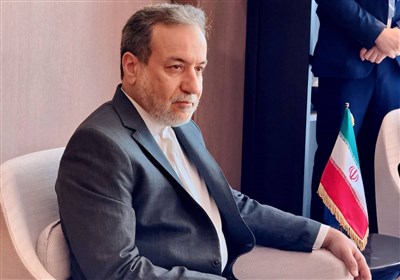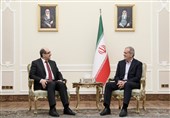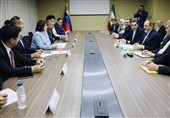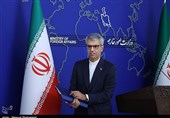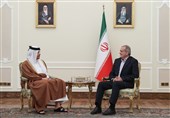Riyadh Threatens to Retaliate against Any Sanctions
TEHRAN (Tasnim) – Saudi Arabia rejected threats to punish it over the disappearance of journalist Jamal Khashoggi in Istanbul, saying the kingdom would retaliate against any sanctions with tougher measures, the official state news agency said on Sunday.
It came after US President Donald Trump threatened “severe punishment” for Riyadh if it turned out Khashoggi, a prominent critic of Saudi authorities and a legal resident of the United States, was killed in the Saudi consulate in Istanbul.
“The Kingdom affirms its total rejection of any threats and attempts to undermine it, whether by threatening to impose economic sanctions, using political pressures, or repeating false accusations...” the official Saudi Press Agency quoted an unnamed government source as saying, according to Reuters.
“The Kingdom also affirms that if it receives any action, it will respond with greater action, and that the Kingdom’s economy has an influential and vital role in the global economy...” the source added without elaborating.
The threat caused the stock market of the world’s biggest oil exporter to lose as much as $33 billion of its value on Sunday in one of the first signs of the economic pain that Riyadh could suffer over the affair.
The Saudi equities index TASI plunged as much as 7 percent in its biggest drop since December 2014, when oil prices were crashing. It later recovered partially to stand 5.0 percent lower shortly before the close.
Turkey believes Khashoggi was deliberately killed in the consulate and his body removed. Riyadh has rejected those claims.
A senior member of Saudi Arabia’s ruling family, Prince Khaled al-Faisal, has met Turkey’s President Tayyip Erdogan to discuss Khashoggi’s disappearance, two sources with knowledge of the matter said without providing details of the talks.
On Friday, a source with links to the prince’s family said Prince Khaled, who is the governor of Mecca, had been sent to Turkey in his capacity as special adviser to King Salman.
Foreign capital is key to Saudi Arabia’s plans to diversify its economy beyond oil and cut a 12.9 percent jobless rate among its citizens.
But in response to Khashoggi’s disappearance, media firms and some technology executives have pulled out of a major Riyadh investment conference scheduled for next week.
“This is happening at a time when Saudi Arabia is preparing for a big investment event and they don’t need people suspending or pulling out investments,” said Nadi Barghouti, head of asset management at Emirates Investment Bank in Dubai.
Trump has not described what punishment Saudi Arabia might face. He has indicated Washington does not want to harm close defense ties, saying the United States would be punishing itself if it halted sales of military equipment to Riyadh.
But US senators have triggered a provision of the Global Magnitsky Human Rights Accountability Act requiring the president to determine whether a foreign person is responsible for a gross human rights violation. The act has in the past imposed visa bans and asset freezes on Russian officials.
Also, anti-Saudi sentiment in the US Congress could conceivably raise pressure to pass No Oil Producing and Exporting Cartels Act, which would end sovereign immunity shielding OPEC members from US legal action.
Past US presidents have opposed the bill but the chances of it being passed may have increased because of Trump’s frequent criticism of the Organization of the Petroleum Exporting Countries, which he accuses of driving up oil prices.
Meanwhile, there is concern Khashoggi’s disappearance could add to a sense that Saudi policy has become more unpredictable under Crown Prince Mohammed bin Salman, who is pushing social reforms to modernize the kingdom but has also presided over a rise in tensions between Riyadh and several other countries.


